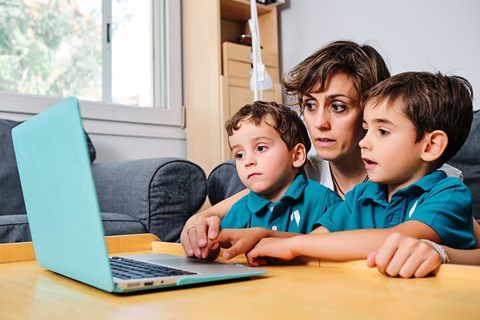4 tips for separated parents to navigate custody battles in family law

As a parent myself and as a former child of separated parents, the need to put your kids first is something I always try to impress on my clients as they navigate co-parenting after separation. Rather than examining the legal considerations of parenting arrangements, in this blog, I will set out some practical measures separated parents can take and things they can consider in order to put their children first when negotiating co-parenting arrangements.
When it comes to parenting arrangements, the family law in Australia is underpinned by the foundational concept that children should be put first. The best interests of the child are paramount in parenting arrangements or disputes. Section 60CA of the Family Law Act provides that:
“In deciding whether to make a particular parenting order in relation to a child, a court must regard the best interests of the child as the paramount consideration.”
-
Understand that what seems “fair” to you may not be fair to the child
Sometimes when parents start living separately, they agree to an equal-time arrangement for the children because that’s what seems fair to the parents. In my experience, some parents even assume that an equal-time arrangement is inevitable under the law, however this is not the case.
Whether an equal-time arrangement is feasible and best for the kids will depend on a range of things, such as the:
- children’s age;
- maturity; and
- developmental needs.
These are in addition to the practical realities such as:
- the distance between the parent’s respective houses, schools and places of work;
- the hours each parent works outside the home and whether they can facilitate school drop off and pick up; and
- what other support they may have available to make these arrangements workable.
Even if all of the logistical matters are not significant, some children simply will not cope with an equal time arrangement or with being away from a particular parent for a lengthy period of time. Research suggests that the quality of time between a child and their parent is more important than the quantity.
Ultimately, even if a particular parenting schedule seems “fair” to the parents if a child is not coping well with it, then parents should be open to reconsidering those arrangements. This leads to the next point.
-
Be flexible where possible
Being flexible and open to a change of routine is really important when parents are separated. Life is unpredictable, and sometimes hiccups or unordinary events arise. For example, one parent may be caught in traffic and late to school pickup, or there may be a cousin’s birthday party that falls on a weekend when the child would normally be with their other parent.
While children thrive on routine, it is crucial that they feel safe and secure in the knowledge that, should something unordinary occur, their parents can respectfully and appropriately coordinate alternate arrangements together. Research suggests that shared parenting arrangements work best when parents are flexible and cooperative.
Flexibility as children age and their circumstances change is also important. A parenting arrangement that is suitable for a baby is unlikely to be what’s best for a toddler or an older child. It is essential that parents recognise that arrangements can and should vary in line with a child’s development.
-
Take on board the opinion of experts
There are many ways separated parents can inform themselves of how to promote their child’s well-being when considering parenting arrangements. Parents can look at social sciences research, and articles on the following websites may be helpful:
- Raising Children Network;
- Australian Institute of Family Studies;
- Murdoch Children’s Research Institute;
- Parenting Research Centre.
Parents should also consult with their children’s educators and the treating medical practitioners. This can be done not only before they reach agreement about parenting arrangements but also after implementing that agreement so that they have an independent view on how the child may be coping with any new changes.
Parents can also employ child development experts to prepare reports and make recommendations in relation to their particular family (known as Child Impact Report or Family Report).
These reports are often ordered to take place when parents are engaged in litigation about parenting matters, however they can also be prepared outside of any litigation between parents. If you engage an expert to prepare a family report, take on board their opinion and don’t outright reject their recommendations because they differ from what you are seeking. The expert’s role is to make recommendations that they consider to be best for the child, and those recommendations should, therefore, be given thorough reflection by parents.
Completion of parenting courses may also lead to positive outcomes for both children and their parents. Some courses focus on parenting skills and/or techniques to promote secure attachment between a child and their parent, and others teach child-focused approaches to navigating co-parenting post-separation and the importance of limiting conflict between parents.
Many of these courses can be done online in your own time, and some are offered for free through the government or other community organisations. Courses that may be helpful are:
- Parenting After Separation courses;
- The Circle of Security Parenting course;
- The Triple P Positive Parenting Program; and
- Tuning into Kids, Tuning into Toddlers or Tuning into Teens programs.
-
Limit conflict between parents as much as possible
Childhood experiences can have a large impact on individuals in their adult life. Tough times or scary incidents can often lead to long-lasting uncomfortable memories for the people exposed to them.
Research suggests that ongoing and/or high conflict between parents can be challenging and can place a large burden on children. The emotional toll on them can outweigh the benefits to the children of shared parenting arrangements.
Ultimately, parents should only be seeking to implement parenting arrangements that are child-focussed and that put the children first. While they may not be your ideal spend-time arrangements with your child, if you are patient and play the “long game”, your child will thank you for it in the future.
Get help from a family lawyer
If you need any assistance with your parenting arrangements after separation, you should speak with Emera Family Law. Our family lawyers have significant expertise and experience in parenting matters.
Further reading
You may also find the following articles useful as you navigate parenting after separation.
- 6 steps when negotiating parenting arrangements with your ex
- Co-parenting apps for separated parents
- Can my children decide where to live?
- Parenting Plan or Parenting Consent Order
Contacting Emera Family Law
Family Lawyers Melbourne
This article is of a general nature and should not be relied upon as legal advice. If you require further information, advice or assistance for your specific circumstances, please contact Emera Family Law.

